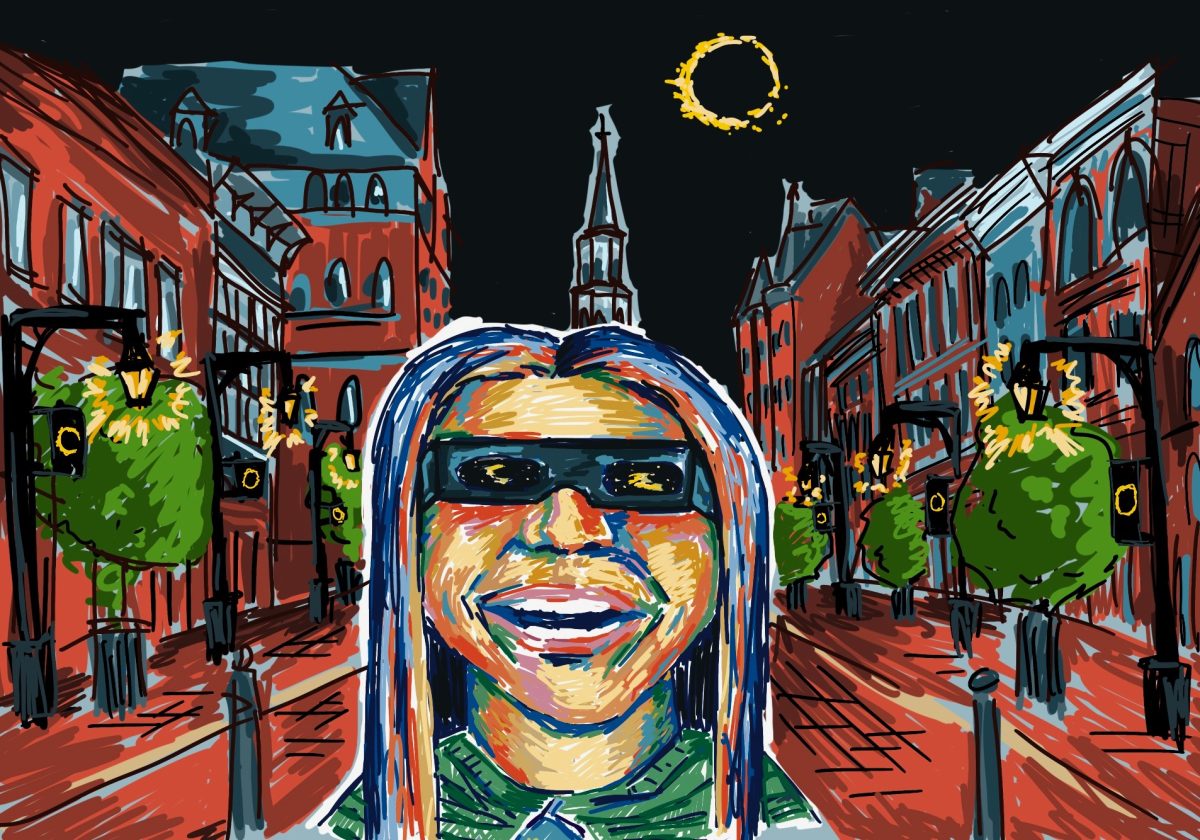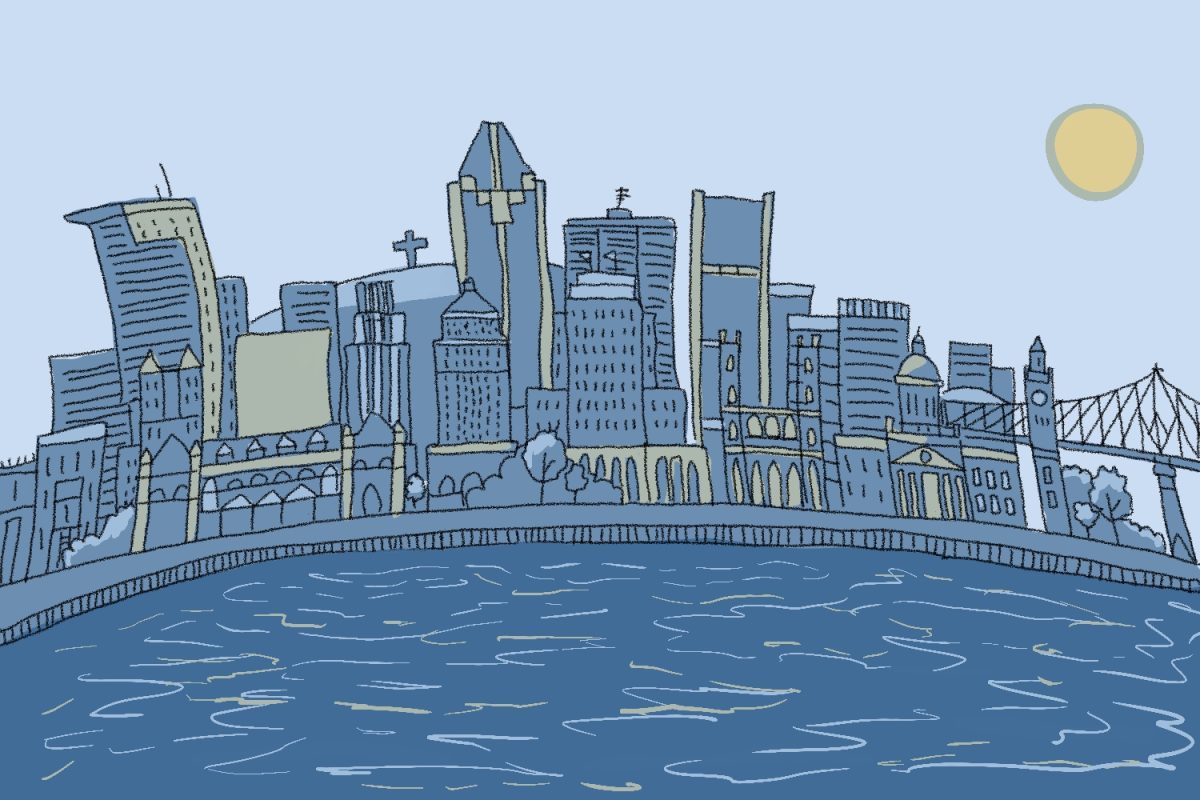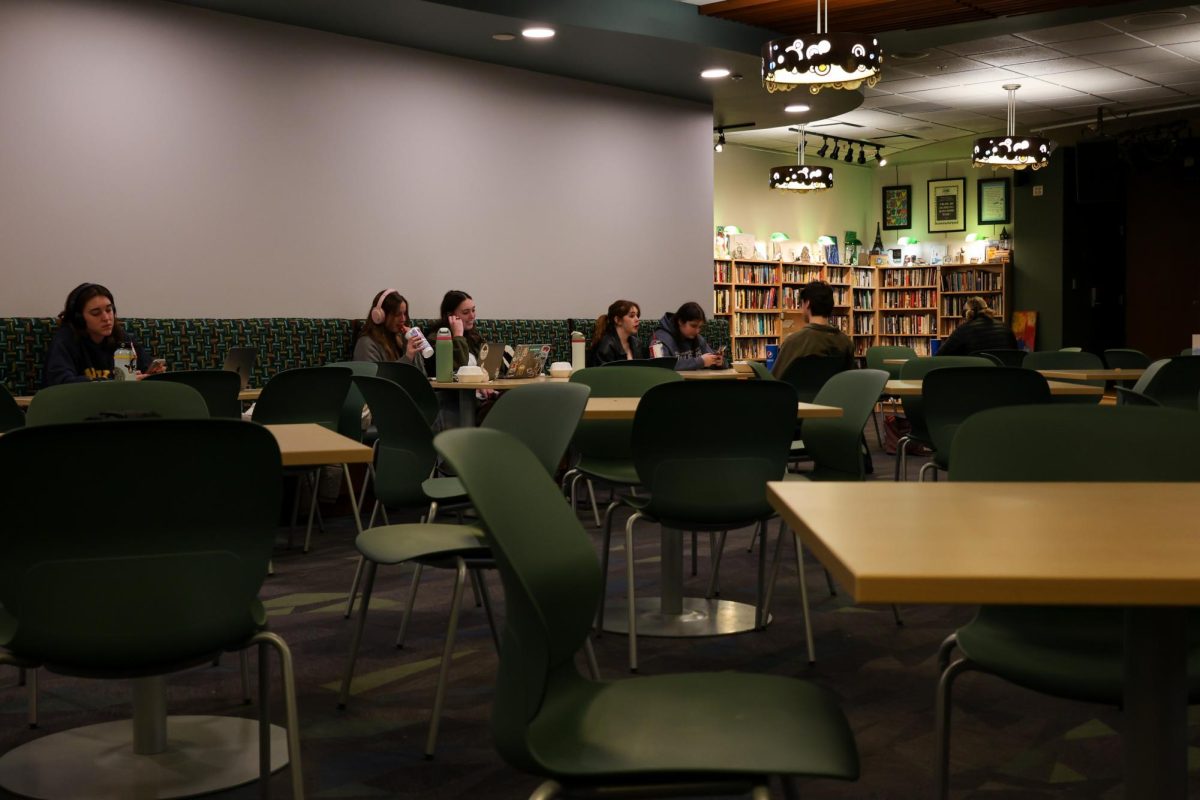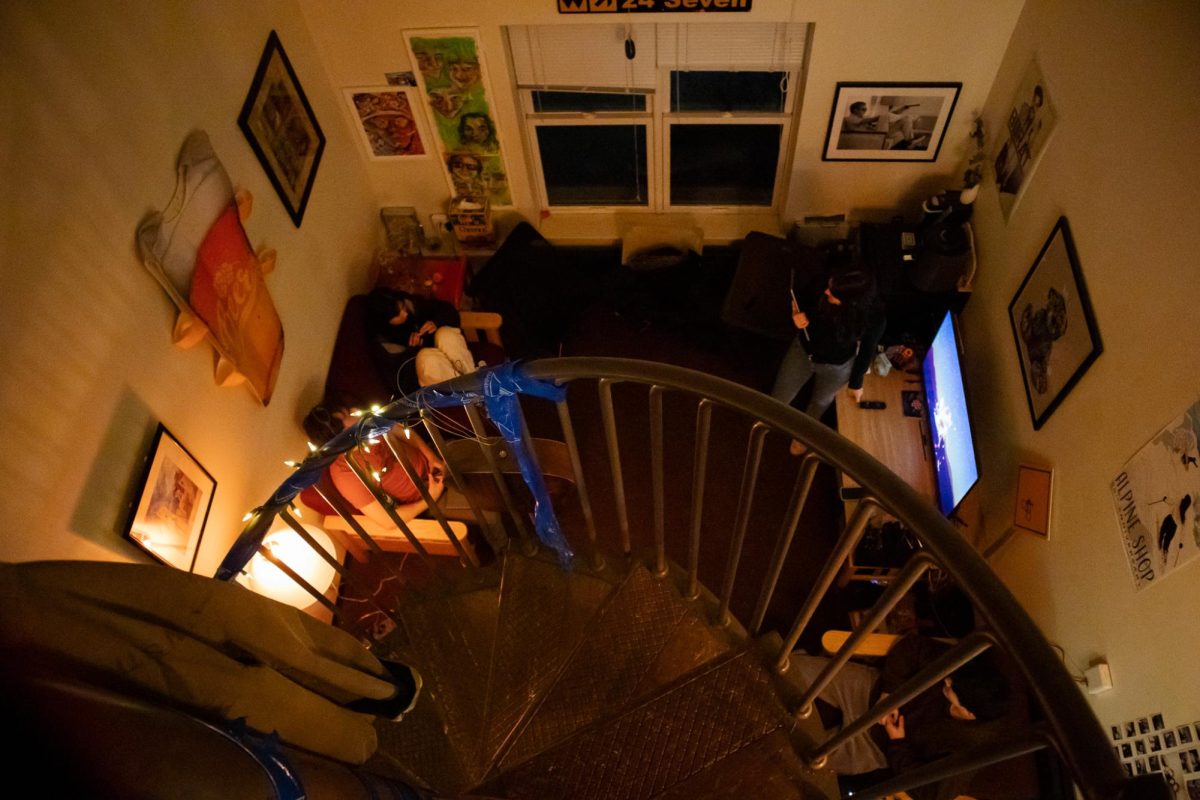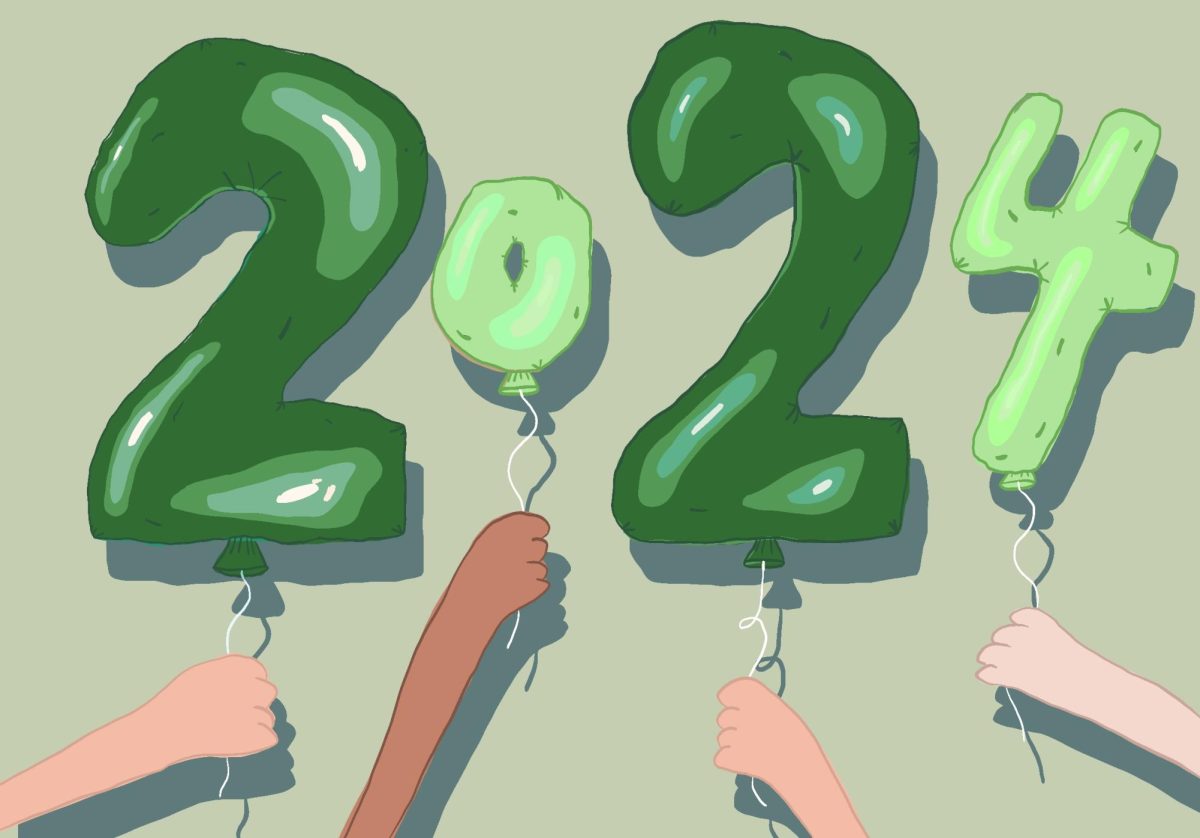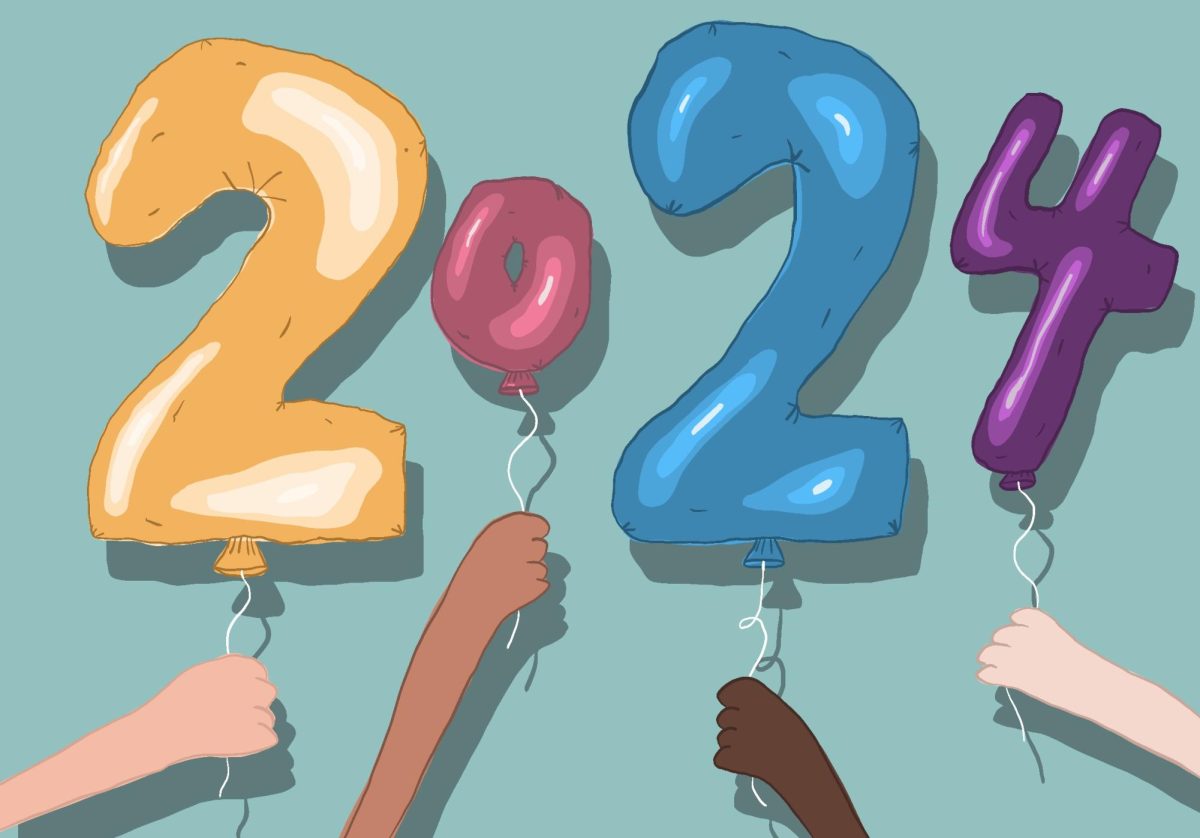I saw the barren land of Vrlika, white rocks and the houses made of those white stones among which snakes and lizards dwell. I saw men and women dancing. . . in silence. There was no sound of music, no singing, just the rhythm created by people’s stepping on the ground heavily. The moment was magic and mystical, for I have never seen anything as gracious and festive in my life…I saw that image as I was listening to Andrea describing the home village of her mother.
Andrea Rutnik is 22 years old. She was born in Osijek, Croatia. Andrea studies philosophy and religion at UVM on the Open Society Institute Undergraduate Exchange Program.
M: Andrea, why did you decide to apply for this program and spend a year of your life living and studying in the US?
A: I wanted to come here to have a different experience. There is so much stuff that you hear about America, both good and bad. So, I wanted to give it a shot and see how I will fit in this big country. I am also trying to get more whole picture of the world. In order to do this it is good to have as many experiences as you can possibly get, so that you can have more knowledge when choosing paths you are going to take in your life. M: What were the differences, if any, in ways of life that surprised or even shocked you that you found in the US?
A: I was actually more surprised about how many similarities I have found. When you make this big trip to the other part of the world, you expect some kind of shock. So I was looking out for some striking differences but there weren’t any! I was surprised about that. The only thing that really shocked me was the washing machines. I am sorry but I have to say this: they suck. Clothes do not get properly washed in them.
M: Then what do you like best about America?
A: I feel that diversity here is more allowed than in Croatia. You can choose your own way and don’t have to be anxious whether people will accept it or not. That’s what I like.
M: Tell me more about your hometown, please.
A: Osijek is a town of about 100,000 in population, situated in the plain, on the right side of River Drava. There was a settlement there in Roman times and part of the town goes back to Middle Ages. Many old buildings that are preserved make the atmosphere of Osijek romantic. People there are kind-hearted and somewhat melancholic.
Even when they are having fun they like to add some heartbreaking songs that draw tears to one’s face. I think that it is a place where you can experience the beauty and the depth of sorrow. There is something in that surroundings that make it perfect for the times when you want to open your heart and cry on someone’s shoulder. (Chuckle)
M: There was a war in Croatia; what was your experience of it?
A: The war began in summer 1991. I was 11 years old then.
My hometown Osijek was besieged from three sides and because of the constant bombarding, people had to live for many months in the basements of their houses and buildings. During that time I was in Osijek only for month or two.
My parents did not want my brother and me to be there so my father brought us to Germany and we stayed there with relatives for two months. Later we went with my mother to Slovenia and then to the seaside of Croatia, because there wasn’t any shooting there. It was hard to understand why these things were happening.
I feared, not for my life, but for my parents’ lives, because at that stage of your life the parents are really important to you and losing them was the worst thing I could imagine. I just wanted this nightmare to end as soon as possible so that we could return to our normal life. I wished I could go to school and see my friends again.
The most appalling thing I remember about that time is the fall of Vukovar, the town nearby to Osijek. It was completely surrounded for several months and bombed constantly.
There were only civilians in the city, many of them children, woman and old people that haven’t seen the daylight for a long time. Its citizens, not skilled solders, were defending it and Vukovar wouldn’t surrender. This gave hope to everyone. Sitting down in the basement we would regularly listen to a radio reports from the surrounded city. There was one reporter in the basement of Vukovars hospital who was sending out news, telling us every day that even though the things are really tough, the city stands. All counted that help from the outside will be coming soon.
People expected UN to intervene and save innocent civilians’ lives. It was in November and I was in exile in Slovenia when I have heard that Vukovar had fallen.
First pictures from the hero city after months of bombarding came – Vukovar ruined completely, not a single building left standing, pale sad faces of people, walking in the rows surrounded only by gray ruins. I cried the whole day after I have seen it in the news. I was a child so disappointed in the world community who did nothing to stop this from happening…
M: To what extent do you think things have improved so far? Is there still inter-ethnic hostility?
A: No. People realized that we have to move on, learn to compromise.
We were friends before and I believe that we’ll be friends again. The hearts of the people everywhere are the same. They all basically wish just to have a nice place under the sky that they can call a home, and loving people around them.
It is politics that divide them, putting in their minds prejudges and ideas about all this differences.
People are na??ve and often more willing to listen what the politicians say, than what their heart is saying.
The war is an ugly thing and those who try to convince you that it can bring good are liars. It brings so much destruction, pain and sadness that it is better to have decades of negotiations if necessary, than few months of the war.
We should all decide for our self whether we want to live in the world of peace, and if so we should demand from our leaders to be the peacemakers, and not the warriors.
I have read somewhere recently “When warriors are leaders, then you will have war”. We must raise leaders of peace.











